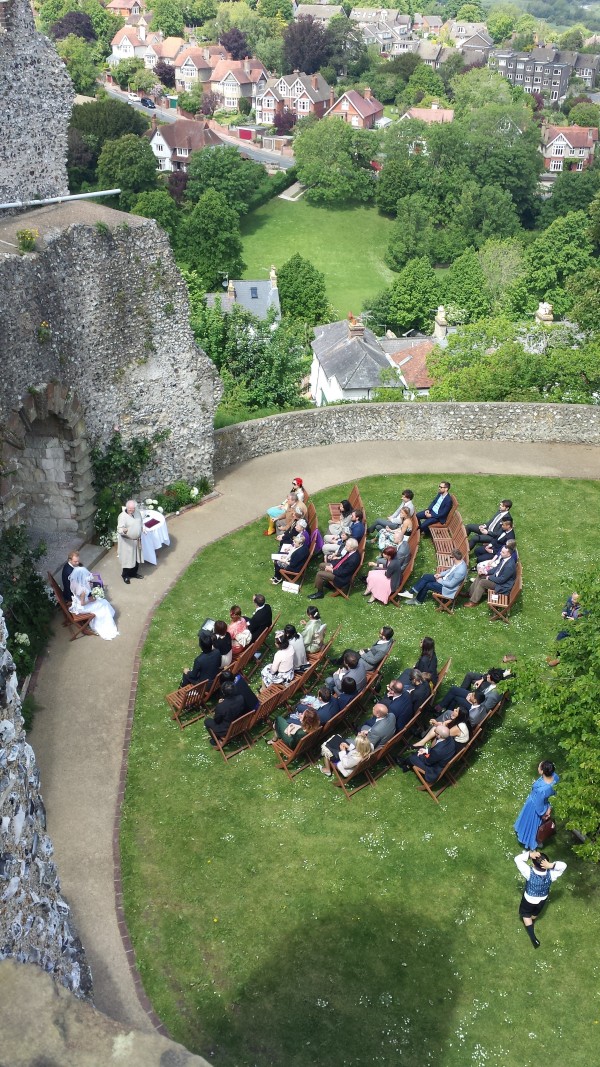
by Michael | Jul 10, 2017 | Blog
Getting a few things straight
Don’t assume the ideal venue for your big event is just there for the taking. For a start, it may not be available on the day. And it might cost more than you anticipate.
So you may only be able to approximate to “ideal”. Probably before anything else, you’ll need to look at your budget.
I can’t sort your finances out for you. You may well want a castle or The Ritz, but they won’t come cheap. You may have to give up on a dream. (There may find wonderful substitutes, though, once you’ve done some research.)
So this article assumes that you accept budgetary limitations.
Ceremony and/or Reception
The other thing to get straight, from the start, is where you actually hold your wedding (or other) ceremony.
You may go from the church (say) to another venue (like a hotel) for the reception.
A lot of people prefer to keep the travel arrangements simple, or prefer a secular (or only part-religious) service. Licensed premises (licensed for weddings!) will tick both boxes. You can arrange for registrars to come and do the legal bits, and then glide seamlessly through to the next part. (That could be a civil celebrant- led personalised ceremony and/or canapes and drinks etc.)
Old Sarum is a wonderful setting for a handfasting!The third possibility is potentially most exciting. You can have the ceremony exactly where you want it (your imagination can run riot!), provided you get permission, of course. So you go (by appointment) to your local Register Office with two witnesses and get legally married. Any time after that, you go up your mountain, visit Stonehenge, mooch by your favourite canal, come into your parents’ back garden, or wherever, with your civil celebrant, and have the ceremony of your dreams.
Naturally, unless you hold this in a restaurant or hotel, you will still have to consider catering.
Choosing your Venue
Depending on your choices above, my venue suggestions would be based on personal recommendation, websites and Google to help you narrow down your search. Then, with your partner, arrange a visit, making sure you get shown round by the event planner.
Go and see a couple of possible of venues, and bear in mind that different weather conditions on the day(s) may unfairly influence your choice!
What you need to find out
Bring a list of questions with you, and write down the answers, in case you forget them later when you’re comparing notes. Naturally, you want to know the cost, but also check exactly what you get, and do not get, for the price. You may have certain requirements (eg “Can I bring in a florist from outside?” or “Can you arrange kosher catering?”) – don’t be afraid to ask.
Parking, catering, decoration, disabled access, bar, toilets, PA system, signage, choice of rooms, setting up the entertainment, buffet or silver service are all issues you are likely to need to discuss. Will the wedding planner (or deputy) be available on the day itself? How much deposit is required, and when must the balance be settled?
If the planner seems adaptable and genuinely willing to put herself out, then that looks good. Do you like her, and would you feel confident working with her?
What is also paramount is your feel for the place. Does it excite you? Do you really want to go there? If you’re lukewarm about the venue, then maybe you should look elsewhere.
If all this sounds like a lot to take in and get done, then bear in mind that you should be starting this process at least a year before the big day. Also consider that this is potentially the biggest day in your lives, and the venue can make or break it. It’s not a choice to be made lightly.
I’m always willing to help and advise, so do have a chat with me about any of the issues this article may have raised.
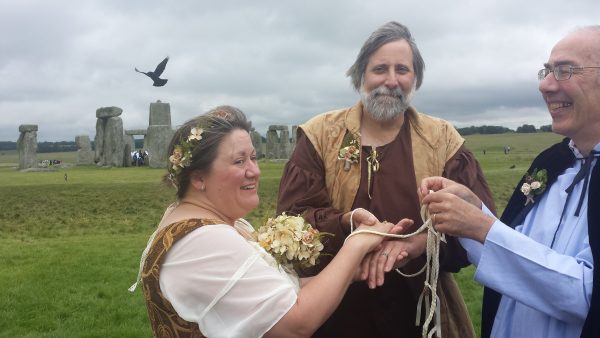
by Michael | Aug 23, 2016 | Blog
One of the many things that attracted me to the role of civil celebrant was the fact that I could offer wedding freedoms.
I could educate people that they had a choice. After all, we’re talking about what should be the biggest day of their lives.
The old way
Up until 2009, I assumed that marriage meant you either attended a full religious service, as in a church, or the register office (fully secular).
Of course, lifestyles have changed and society has become more accepting. For example, same-sex weddings have become quite commonplace. One of the favourite ceremonies I have conducted, as it happens, was same-sex.
Nonetheless, as I constantly realise from personal experience, many people are unaware that wedding freedoms exist.
Sure, the old choices are still feasible for those who want them.
The new
However, you may be a devoted couple who may not share spiritual beliefs. Happily, you can now have a romantic ceremony that includes what really matters to you. All of us have the freedom to commit to each other, surrounded by family and friends, in venues of our choice. We can invite our chosen civil celebrant to design and conduct beautiful, meaningful ceremonies.
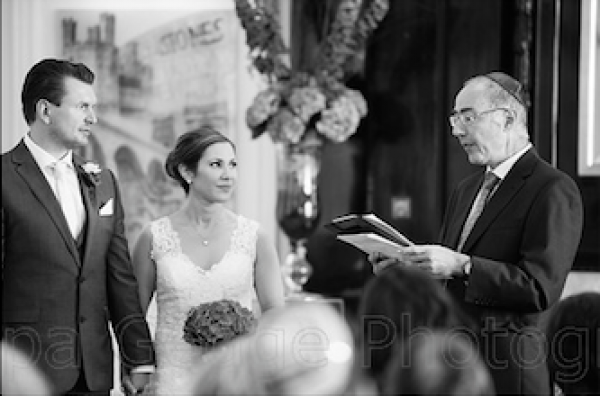
Photo: Philippa Gedge
I seem to be asked to help create a lot of part-religious ceremonies. Among them, I have led a full (well, 95%!) Jewish wedding, a wedding blessing for a Muslim and a Jewess, a Christian marrying a Jew (with a priest covering the Christian parts!) and a half-Jew marrying a pagan.
In this way, as long as the legal bits are dealt with by the registrars first, the exact degree of religiosity, of formality and tone are up to the couple. They can thus put their seal on the proceedings and make it an absolutely unique occasion.
The tailor-made service and the personalised style and special venue all contribute to a unforgettable, wonderful occasion – a far cry, for some, from the extremes of a full religious service or the register office.
I’m glad to say that we’ve come a long way from the rigidity of the past. Then you were offered only a standard 10 minute register office ceremony or a fixed, religious ceremony that was not unique to you and may have included words you were not comfortable with.
Those still work for people. But certainly not for everyone.
I believe that wedding freedoms surely make perfect sense, don’t they?
If you agree, please help me spread the word!
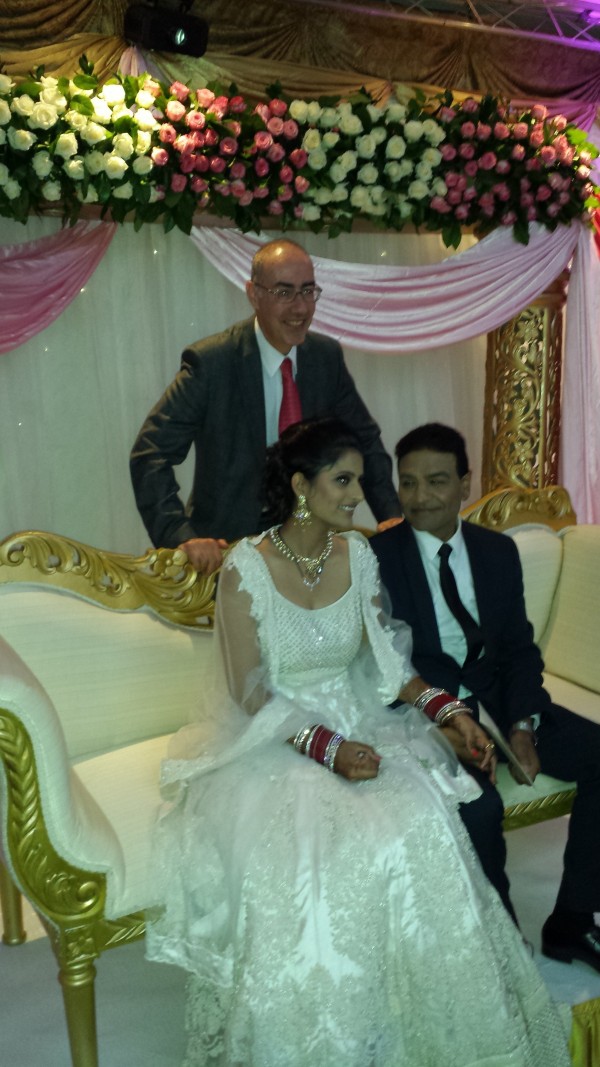
by Michael | Sep 8, 2015 | Blog
Misunderstandings can be quite damaging. My job as civil ceremony creator and conductor is certainly open to misconceptions.
I was vividly reminded of this a few days ago.
The wrong message
At a recent wedding fair, I had thought that I was getting through to people as I explained to them what a civil celebrant did and what a difference someone like me could make at a major lifetime event.
Then, three consecutive couples who were looking for a civil ceremony said to me, “Oh no, we can’t use you because we’ve already booked registrars.”
Unfortunately, they had missed the point entirely.
The registrars do the legal bit. They ensure you get the piece of paper that makes your marriage legitimate. The service that accompanies the certificate signing does not have to be the be all and end all of the occasion, although you can settle for that, if you wish.
To give your event an individual stamp, afterwards, you can have an add-on ceremony that actually means something to you and your guests; one that will create memories that last the rest of your life – both for you and for your guests.
The process
When planning the ceremony, a good civil celebrant will consult with, and listen to, you, so as to understand exactly what you may want. He will advise and guide you, as well as offer ideas, if you need any.
Then the celebrant will compile a draft and e-mail it to you. You will be invited to check it carefully, not just for any errors but also in case any of the readings (say) don’t work for you. Following your suggestions, the celebrant will make the relevant changes, and, after a couple more e-mail exchanges, you may virtually be there.
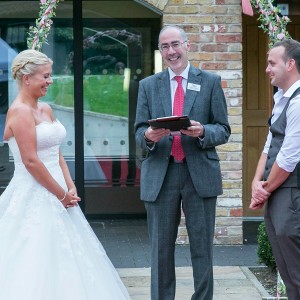
The ceremony, then, will reflect your personality, your beliefs and be everything you want it to be.
Every word will have been approved by you. Assuming that your celebrant has decent presentation skills, you will have a tailor-made, unique service that will be the ceremony of your dreams!
That’s something really wonderful.
And I think it was worth setting the record straight, don’t you?





